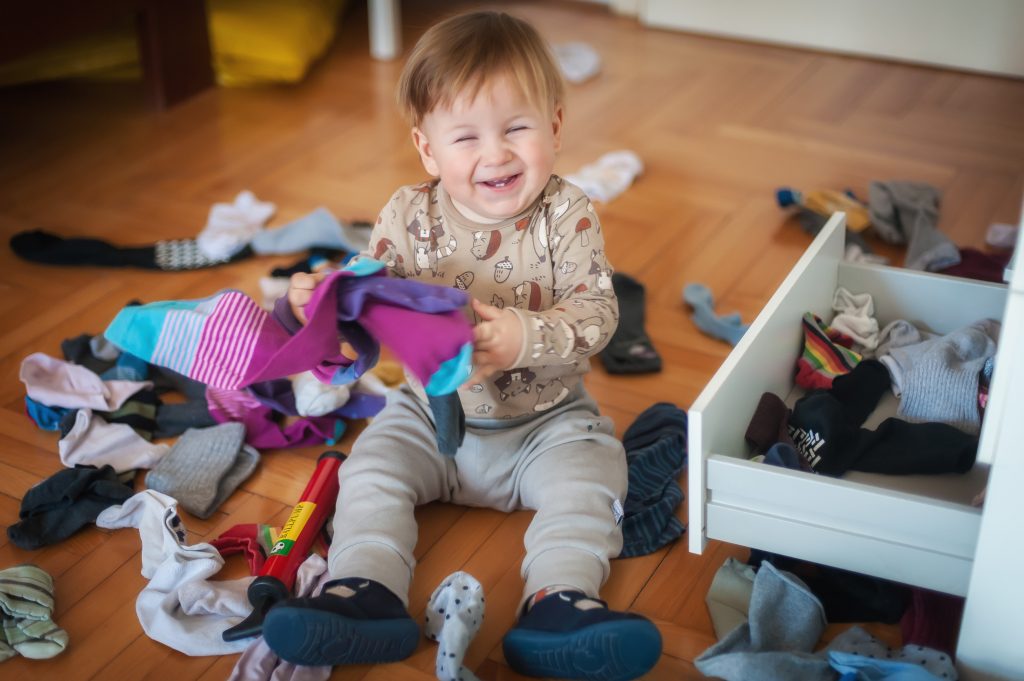You may not always see it, but it’s there—buzzing in the background of nearly every waking moment. The school forms that need signing, the birthday gifts that need buying, the mental tabs open for groceries, car seats, nap schedules, and flu shots. The mental load of motherhood isn’t just about what gets done, it’s about keeping track of it all—and that invisible weight is very, very real. For many moms, it’s not the physical exhaustion that wears them down the most, but the nonstop thinking, remembering, and planning that never seems to end. Here are 12 things that prove the mental load of motherhood isn’t just in your head—it’s a full-time job in itself.
1. Knowing Everyone’s Schedule (Without Writing It Down)
You know when the next dentist appointment is, which day is show-and-tell, when soccer practice ends, and that Friday is library day—but no one had to tell you to remember all that. Somehow, it’s stored and updated in your brain like a never-ending calendar app. The mental load of motherhood often means managing multiple lives’ schedules in perfect sync. One missed item can ripple through the whole day. It’s not magic—it’s unpaid, unacknowledged labor.
2. Anticipating Everyone’s Needs Before They Happen
You pack extra snacks because you know someone will get hungry. You bring an extra pair of clothes because there might be an accident. While others live in the moment, you’re already three steps ahead. The mental load of motherhood includes forecasting everyone’s mood, comfort, and survival needs. It’s like being the family’s personal weather radar, constantly scanning for storms.
3. Managing the Never-Ending To-Do List (That Only You Can See)
From refilling prescriptions to replacing outgrown clothes, you’re keeping a list that lives entirely in your head. No one else sees it or knows how long it is, but they always benefit from its completion. It grows at night when you should be sleeping and replays in your mind during the drive home. This invisible checklist never clears completely. It’s exhausting to carry—and even more exhausting to explain.
4. Remembering Every Birthday, Holiday, and Teacher Appreciation Week
You are the reason the cards are signed, the gifts are wrapped, and the costumes are ready on the right day. If you weren’t thinking about it weeks in advance, it probably wouldn’t happen at all. The mental load of motherhood includes being the family’s memory keeper. You hold the traditions, the thoughtfulness, and the magic that makes childhood special. But it often comes at the cost of your own peace of mind.
5. Keeping Track of What Everyone Likes, Hates, and Suddenly Changed Their Mind About
One kid suddenly hates bananas. Another now loves blue shirts but only if they don’t have buttons. You adapt without skipping a beat, often without anyone even realizing the shift. It’s a mental inventory that’s always being updated. The mental load of motherhood means customizing every meal, outfit, and routine to avoid meltdowns before they start.
6. Being the Family’s Default Emotional Regulator
You’re the one who smooths over tantrums, coaches through tough days, and holds space for everyone else’s big feelings. Your emotional labor often goes unnoticed—but it holds the household together. It’s not just about solving problems—it’s about staying calm enough to absorb everyone else’s stress. The mental load includes managing your own feelings while helping everyone else name and navigate theirs. It’s deeply important—and incredibly draining.
7. Knowing Where Everything Is (Even If You Didn’t Touch It)
The lost shoes? You know where they are. The missing homework folder? You saw it under the couch two days ago. You keep a mental map of every item in the house, whether you put it there or not. The mental load of motherhood includes being the unofficial family GPS. Somehow, you are expected to just know.
8. Answering Questions. So. Many. Questions.
From “What’s for dinner?” to “Where’s my other sock?” you’re bombarded with questions all day. The answers are expected instantly—even when they could easily be found elsewhere. You’re the human search engine, calendar, and problem solver all in one. And while you may answer with love, it still drains your battery. Sometimes, you just want one moment of silence without having to think of a response.
9. Being the One Who Plans for the Worst-Case Scenario
You carry Band-Aids in your purse, allergy meds in your glove box, and an emergency snack in every bag. If someone throws up at school or the car battery dies, you’ve already thought about what you’ll do. You hope for the best but mentally prepare for the worst. This kind of invisible planning is part of the mental load of motherhood that never really stops. It’s why your brain rarely feels like it’s resting.
10. Orchestrating Daily Routines Down to the Minute
You know exactly how long it takes to get out the door, what time the toddler needs to nap, and how to sequence bath, books, and bedtime without a meltdown. You’re the master of routines—because without them, the wheels fall off. The mental load involves thinking six steps ahead just to make one transition smooth. And when things go sideways, you’re expected to adjust without losing it.
11. Keeping Up with Doctor Visits, School Emails, and Permission Slips
You don’t just take care of your child—you manage the entire administrative side of parenting. This includes RSVPing to birthday parties, scheduling checkups, submitting forms, and emailing teachers. All of this behind-the-scenes work adds up fast. It’s why your brain feels full even if you never left the house. The logistics alone could be someone’s full-time job—and often, it is.
12. Putting Yourself Last—Because Everyone Else Comes First
You forget to eat, skip your workout, or stay up too late just to have quiet time. Your needs end up at the bottom of the list, not out of neglect, but because there’s just no room left. The mental load of motherhood often means sacrificing your own peace so everyone else can have theirs. It’s done out of love, but that doesn’t mean it’s sustainable.
Naming It Is the First Step to Changing It
The mental load of motherhood is very real—and incredibly heavy. It’s not just the things you do, it’s the constant thinking about the things you do. Naming it doesn’t make you weak or ungrateful. It makes you human—and helps you advocate for more support, more balance, and more grace. Because moms deserve mental space too.
Which part of the mental load of motherhood hits closest to home for you? Share your story or secret survival tip in the comments!
Read More:
From Mean to Queen: 11 Secrets to Being a Happier Calmer Mom
10 Hacks Every New Mom Should Know to Save Time and Sanity
Catherine is a tech-savvy writer who has focused on the personal finance space for more than eight years. She has a Bachelor’s in Information Technology and enjoys showcasing how tech can simplify everyday personal finance tasks like budgeting, spending tracking, and planning for the future. Additionally, she’s explored the ins and outs of the world of side hustles and loves to share what she’s learned along the way. When she’s not working, you can find her relaxing at home in the Pacific Northwest with her two cats or enjoying a cup of coffee at her neighborhood cafe.













